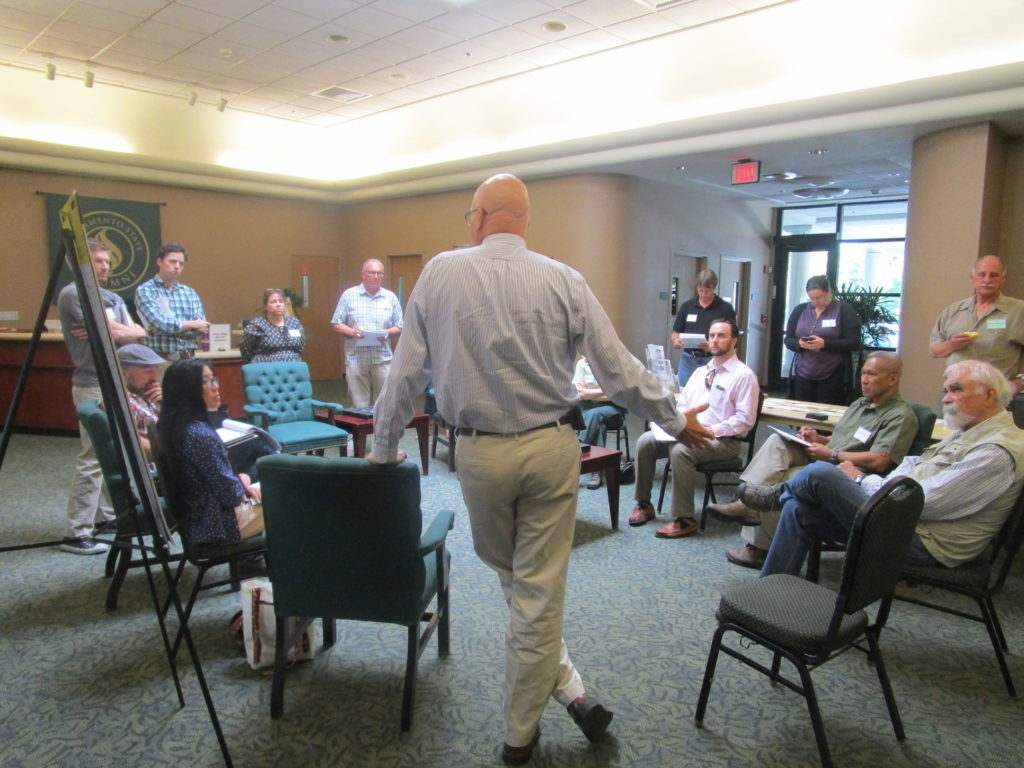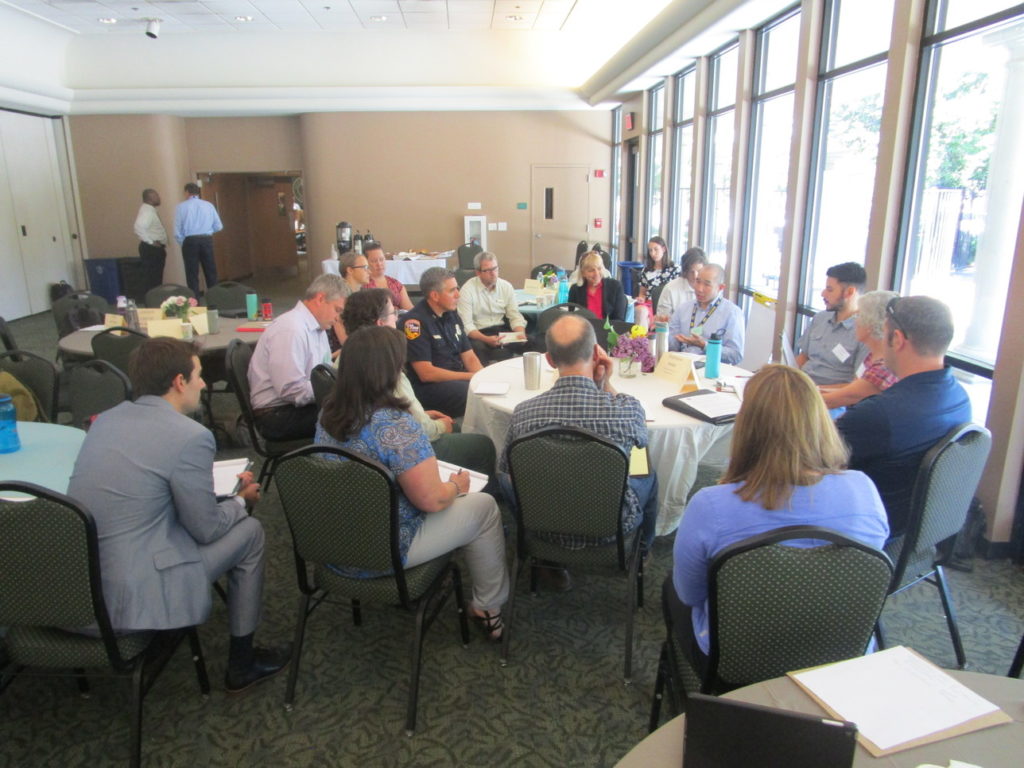Last month the Sierra Institute hosted its biannual SCALE meeting in Sacramento. More people and groups attended this SCALE meeting than ever before, coming from all over California and representing over eleven collaborative groups. During the workshop we heard introductions from new groups such as Yosemite Stanislaus Solutions, Alpine Biomass Committee and the South Lassen Watersheds Group, as well as updates from Dinkey, Trinity County, Burney-Hat Creek and others.
The workshop focused on providing tools and support to collaboratives to move from project planning to implementation, and incorporated a mix of small and large group discussions to capitalize on the wealth of knowledge in the room. One of the sessions consisted of expert stations on three different USFS tools and authorities: the Wyden Authority, Good Neighbor Authority (GNA) and Stewardship Contracts and Agreements. Attendees were able to participate in two out of the three small group discussions, which provided an introduction to these tools to see which might be applicable for their collaborative. One of the next steps for SCALE will be to follow up with additional resources on how to utilize these tools, as well as working with collaboratives and the Forest Service to advance projects under these mechanisms.

After lunch, a panel featuring Barnie Gyant (USFS Region 5), Helge Eng (CalFire), Ian Achimore (Santa Ana Watershed Project Authority), and Zach Knight (Blue Forest Conservation) discussed opportunities for partnerships and funding all-lands restoration work. The diversity of the panel, with panelists representing federal and state agencies, water agencies, and a mission-driven, for-profit highlighted the need to bring in new stakeholders and connect with downstream beneficiaries of forest restoration. Connecting downstream water users to the watershed services provided by healthy forests at their water source was of particular interest to the workshop participants, and SCALE is exploring how collaboratives can develop partnerships with IRWMs, water agencies, and private investment. Expect to hear more on this subject in the coming months!

A third theme that arose during the workshop was a focus on collaboration and community. The workshop included a session on local contracting and workforce development, and many of the attendees appreciated the work of those presenters to contribute to the local community. Another session used a workshop approach to brainstorm solutions to challenges encountered by three different collaboratives in the region. One workshop group discussed strategies for educating private landowners about the importance of fuel reduction to complete all-lands restoration using a real-world example from FireScape Mendocino. Another group focused on the idea of Burney-Hat Creek to develop a restoration project using Good Neighbor authority that incorporates a timber component, while a third group how to move from general concepts to project selection – a current challenge for Yosemite Stanislaus Solutions. Using real, on-the-ground projects and collaborative process challenges, members of different groups shared their experience with these and similar issues, and reinforced the idea that there is a lot of existing knowledge in the SCALE network for groups to utilize. One of SCALE’s ongoing projects will be to continue to share this information- through group updates, webinars, and this website- to better connect collaboratives with these resources.
In addition to the next steps described above, Sierra Institute will continue to focus on project planning and permitting, local contracting, addressing turnover in the USFS and other agencies/organizations, and engaging new collaborative forestry groups in California.
